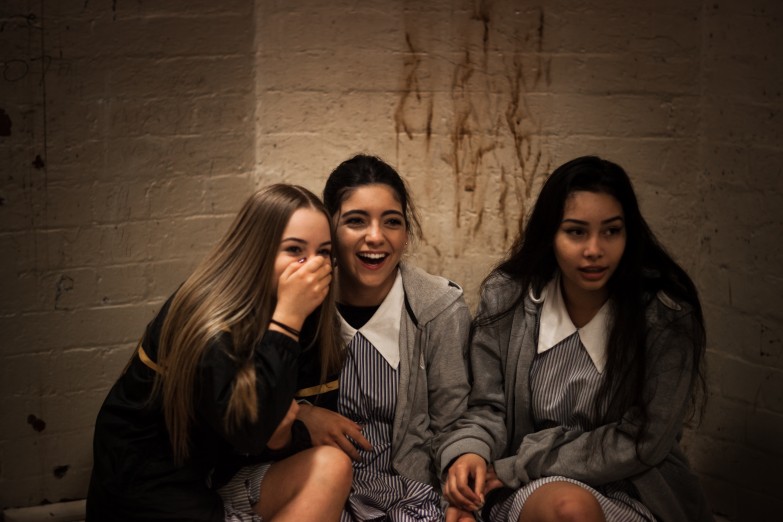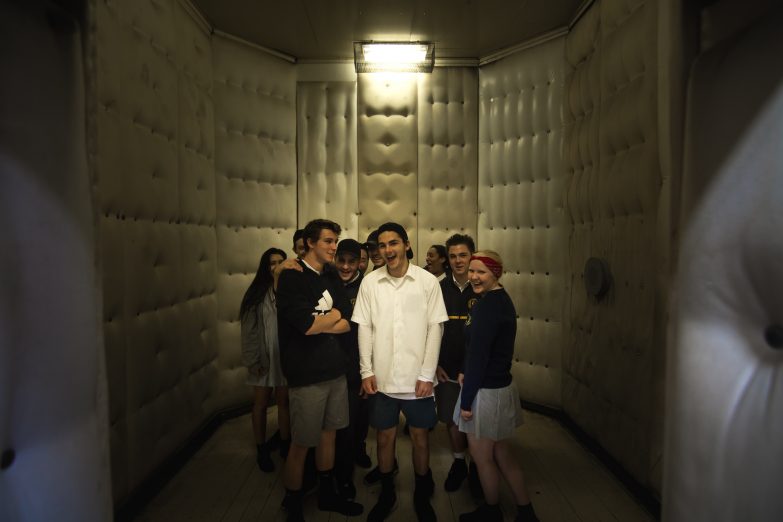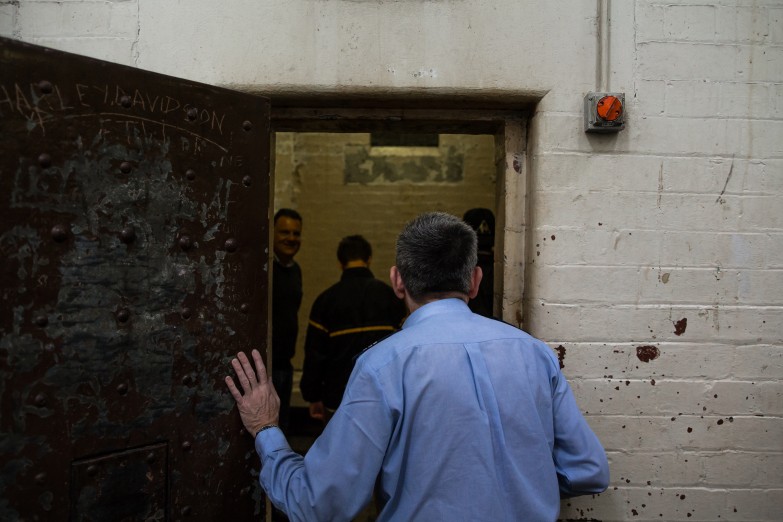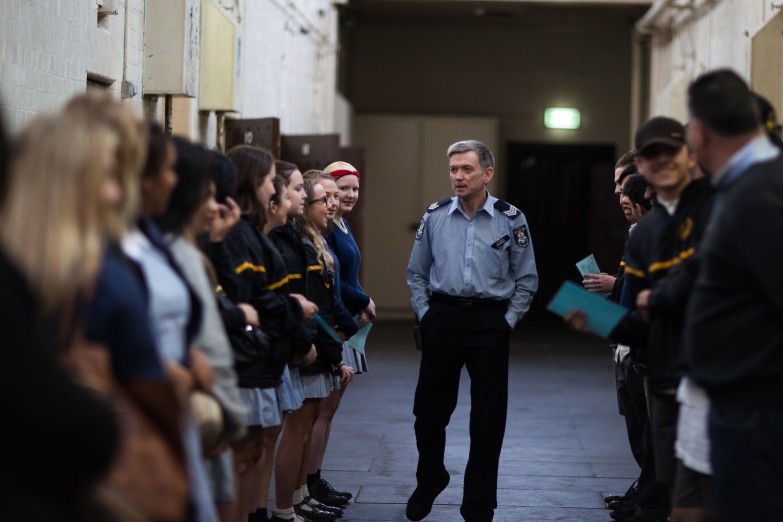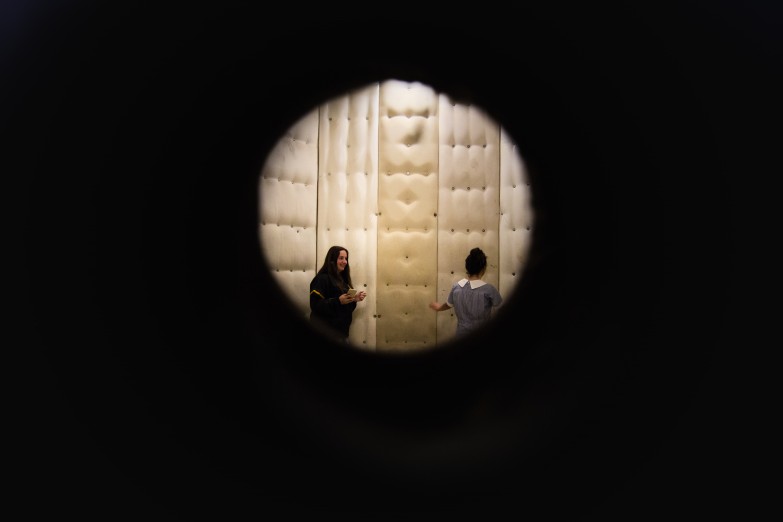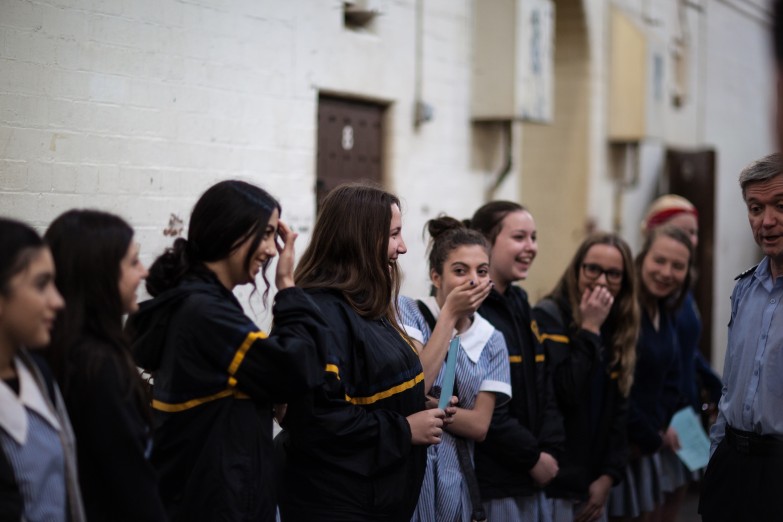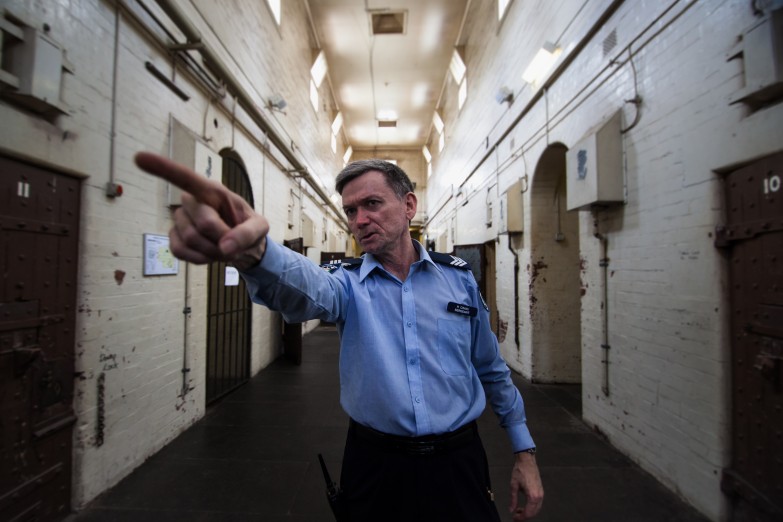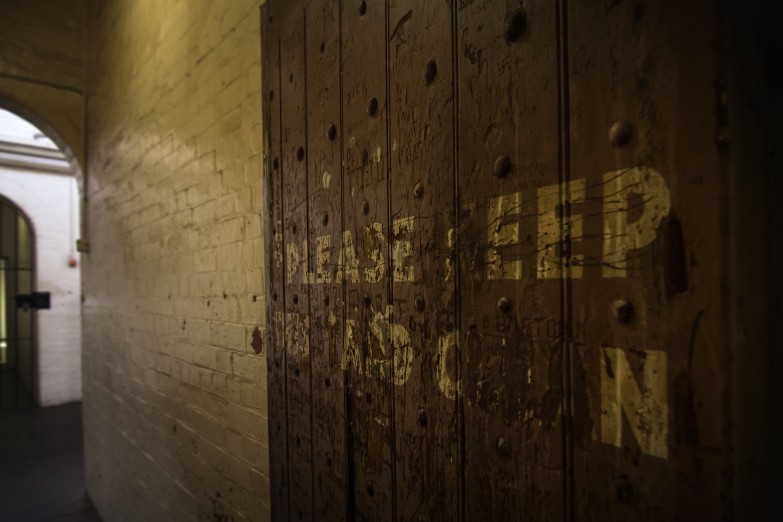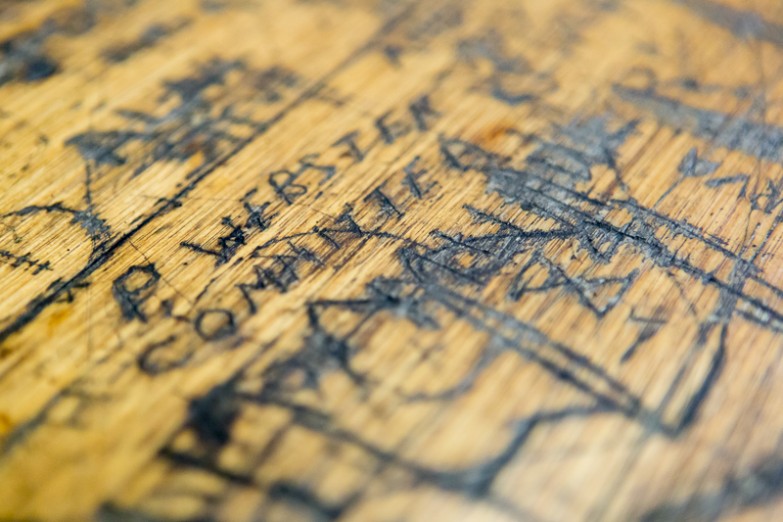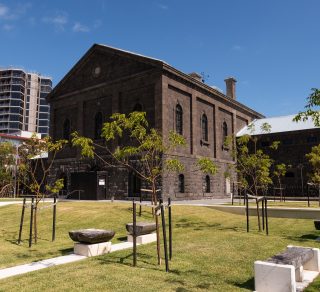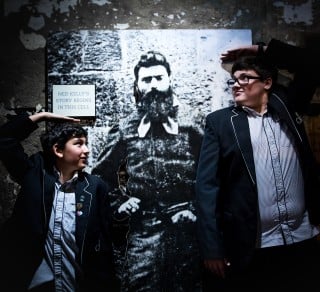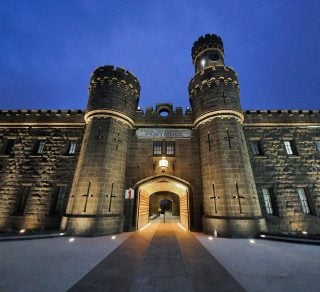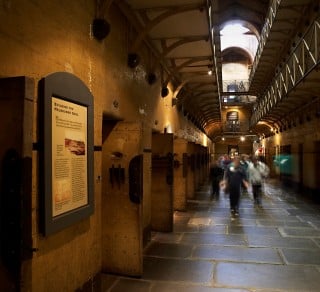Between 1909 and 1994 the City Watch House was Melbourne’s central holding facility for people arrested and awaiting trial.
Countless people were held here, upwards of 50 people were brough in every day, and their stories can be told both through historical records and also can be seen in the fabric of the building.
The police charge room and cells remain almost unchanged since the 1990s when the police left, giving students a very special opportunity to be transported back in time.



